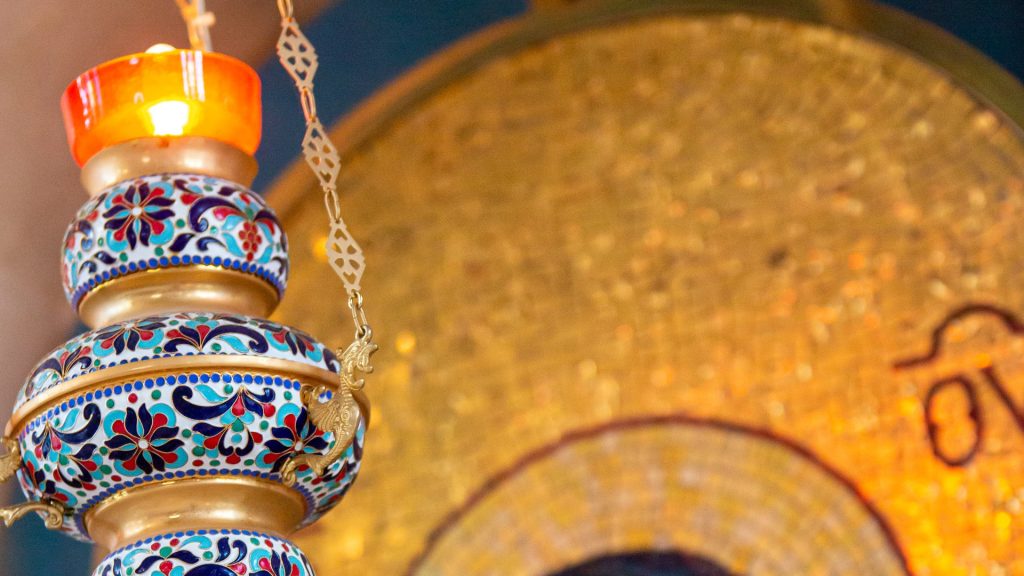Q: Can I attend services if I am not Orthodox?
A: Yes! We are delighted to meet newcomers, inquirers and visitors. You may wish to contact the clergy ahead of your visit but it is not strictly necessary; it is considered polite however to introduce yourself to the priest after the service.
Q: May I receive Holy Communion if I am not Orthodox?
A: No, only Orthodox Christians may receive Holy Communion. This may seem rather harsh or exclusive in today’s ‘inclusive’ world but it is actually part of the Orthodox Church’s care for strangers and the non-Orthodox. The parish priest or deacon will be happy to discuss the issue with any genuinely interested person who wishes to know more. At the very end of the Communion service (Divine Liturgy) some blessed bread known as antidoron is distributed; all (Orthodox and non-Orthodox alike) are most welcome to come up and take some and receive a blessing from the priest, there is no need to ask permission to do this; simply join the queue.
Q: What are Orthodox services like?
A: Orthodox worship is highly liturgical, with the clergy going in and out of the sanctuary and performing many ceremonial tasks which may at first seem strange to non-Orthodox eyes. Unlike in an Anglican or Roman Catholic service, a visitor may notice worshippers coming and going at various times throughout the service, lighting candles, crossing themselves, bowing or even prostrating themselves on the ground, standing quietly in private prayer or venerating the icons around the church. Nobody pays much attention to what anyone else is doing. There are no pews; Orthodox people tend to stand for services, although there are seats around the edges of the temple, if needed. There is no organ or other musical instrumentation; all the music is acappella and sung by a small choir and there are no parts which the congregation must join in with, although some will sing or whisper quietly along. There is much more to say about this subject, but as the Orthodox like to say, the best way to find out is to come and see!
Q: What should I do or how should I act at my first service?
A: Come with love, good faith, an open mind, respect and reverence. Try to let the experience carry you along and don’t worry; watch what others do and follow along as best you can. You are not obliged to venerate icons, cross yourself or anything. You may stand or sit as you wish. It is, however, considered respectful to stand during the reading of the Gospel during the Divine Liturgy and other services and during the recitation of The Lord’s Prayer. You will see people standing up at various other times, try and notice when these happen but don’t be worried about it. Wear something reasonably smart, pleasant and modest and avoid slogans, shorts, short skirts and t-shirts. Some Orthodox women cover their heads, some choose not to; there is no expectation on visitors to worry about this.
Q: Do I need to be Greek to come to your church?
A: Not at all, the Greek part of our church’s name refers more to our wonderful spiritual heritage than the country or language itself per se. The language of the New Testament was (Koine) Greek and it was a common language spoken throughout Asia Minor and the Holy Land in the very early days of the church. Every person who sincerely wishes to know Christ and encounter the faith passed from Him to the Apostles and then faithfully preserved by the Orthodox Church for the last 20 centuries is welcome, regardless of ethnicity or language. Our services are in English, although you will sometimes hear bits of Greek, Russian or Romanian in addition as these are the first languages of many of our faithful.
